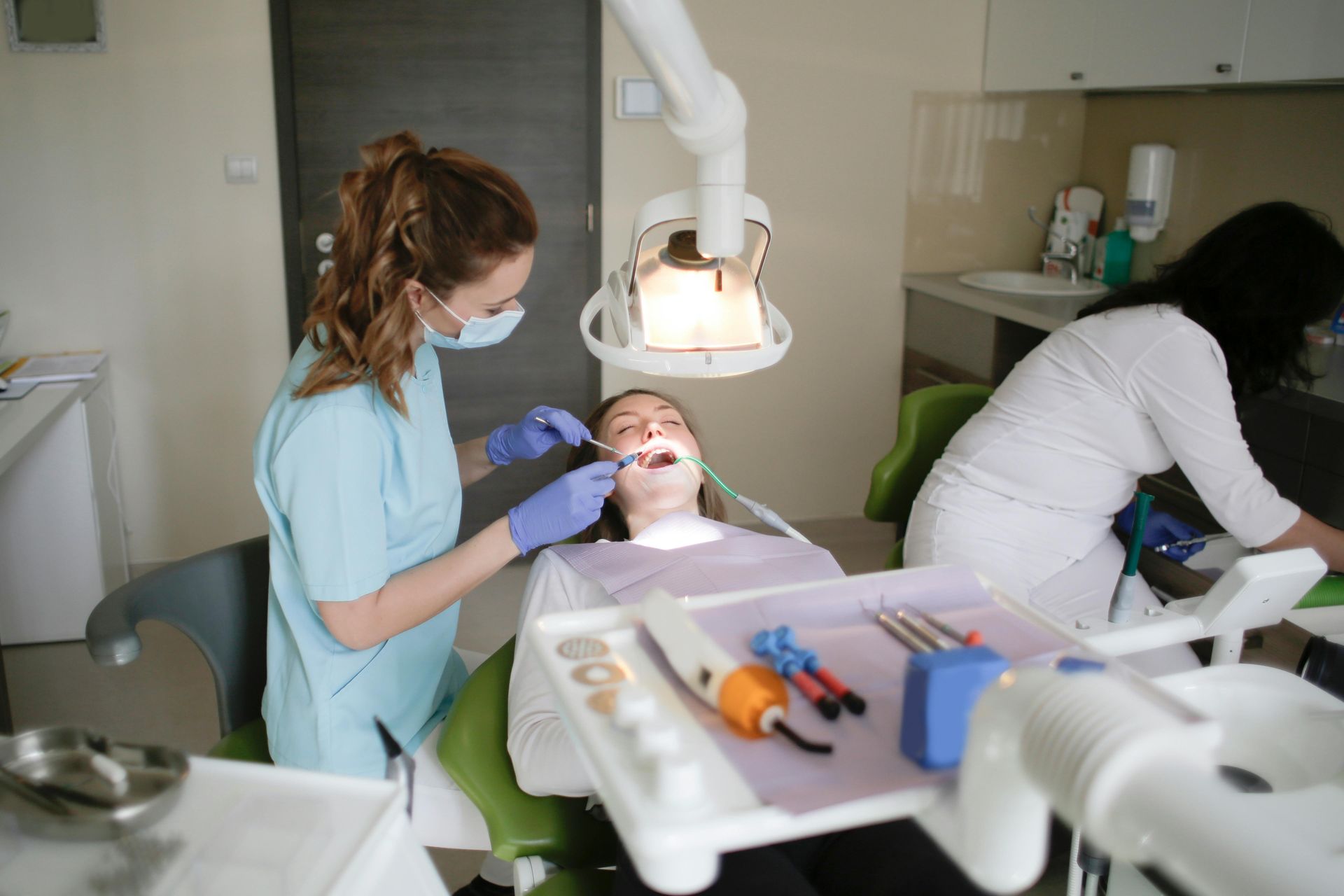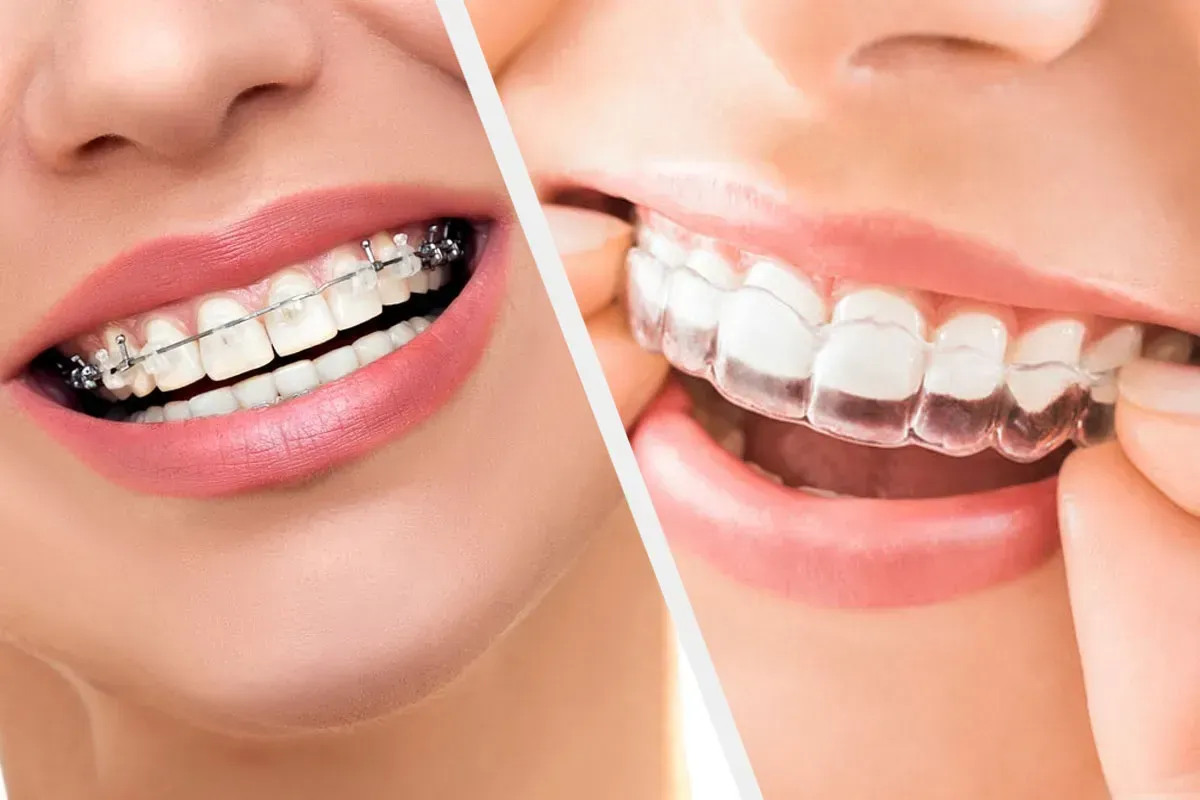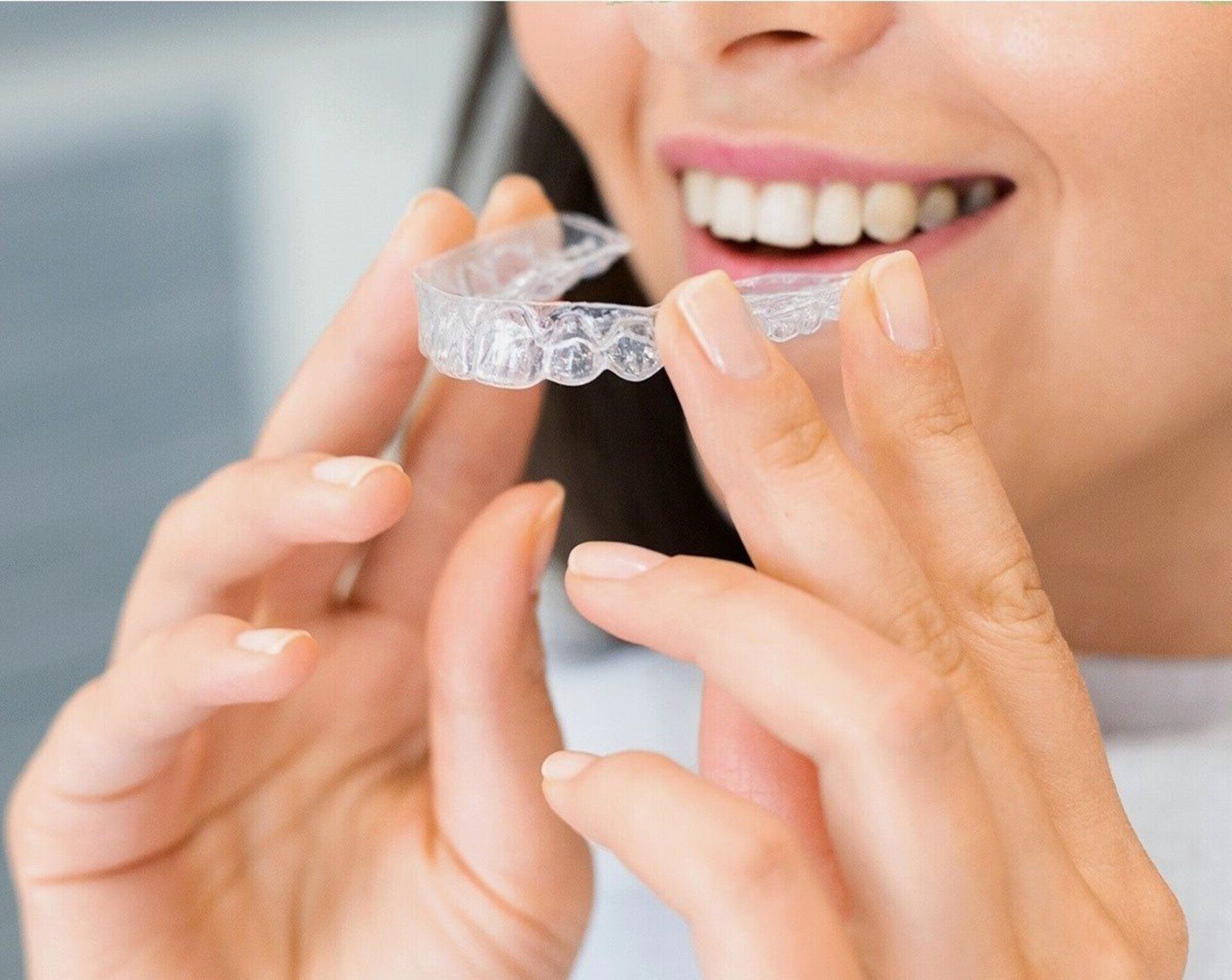The Ultimate Guide to Preventing Gum Recession: 6 Essential Tips
Understand Gum Recession and Its Causes
Gum recession, a form of gum disease, occurs when the margin of the gum tissue that surrounds the teeth wears away or pulls back, exposing more of the tooth or the tooth's root. This issue can lead to tooth sensitivity and tooth loss if not addressed. Several factors contribute to gum recession, including:
- Genetic predisposition: Some people may be more susceptible to gum disease.
- Aggressive tooth brushing: Using a hard-bristled toothbrush or brushing too vigorously can wear down enamel and push back the gums.
- Insufficient oral care: Inadequate brushing and flossing can leave food particles that lead to plaque buildup and gum disease.
- Tobacco use: Products containing tobacco can cause gums to recede.
- Teeth grinding: Clenching or grinding your teeth can put excessive force on the teeth and lead to receding gums.
- Crooked teeth or a misaligned bite: These can result in too much force on the gums and bone, promoting recession.
A baseline understanding of these causes can aid in preventing gum recession and maintaining gum health. Regular visits to a dentist for professional cleanings can help identify early signs of gum disease and prevent further complications.
Maintain Proper Oral Hygiene
Maintaining good oral hygiene is the cornerstone of keeping your gums healthy and preventing gum recession. It involves regular brushing, flossing, and rinsing to minimize the accumulation of harmful bacteria and food particles that can lead to tooth decay, gum tissues inflammation, and bone loss. A key component of oral health is the mitigation of plaque buildup, as this sticky film of bacteria can harden into tartar, a substance that contributes to gum recession and other forms of gum disease.
A daily routine that includes twice-a-day brushing with a fluoride toothpaste, flossing at least once a day, and the use of antibacterial mouthwash can keep your gums in top shape. In addition, try to avoid sugary foods and drinks, as they can encourage plaque and bacteria growth. For an extra layer of protection, consider your diet and lifestyle choices—adequate intake of vitamins and minerals and avoidance of tobacco products are vital for maintaining gum health. Remember, regular dental cleaning by a professional is also an essential part of this regimen.
Moreover, it’s critical to look out for early signs of gum disease such as redness, bleeding, or swollen gums. If you’re experiencing any of these symptoms, you should schedule a visit with your dentist for an evaluation and guidance on the best dental care practices for your case.
Gentle Brushing Techniques
Using the correct brushing technique is just as important as brushing regularly. Opt for a soft-bristled toothbrush that can clean your teeth effectively without causing damage to your gum tissues or tooth enamel. A gentle, circular motion at a 45-degree angle to your gums is the best way to clean your teeth and gums. Avoid aggressive brushing, which can contribute to gum recession and tooth sensitivity.
Here's a quick guide for gentle brushing:
- Use a Soft-Bristled Brush: Choose a toothbrush with soft bristles to minimize irritation.
- Right Angle: Always hold your brush at a 45-degree angle to your gums.
- Go Round: Use gentle, circular motions instead of back-and-forth scrubbing.
- Take Time: Spend at least two minutes brushing to ensure you've cleaned all surfaces thoroughly.
- Clean Tongue: Don't forget to gently brush your tongue to remove bacteria.
- Replace: Change your toothbrush every three to four months, or sooner if the bristles are frayed.
Effective Flossing Methods
Flossing is an integral part of oral care that removes food particles and plaque from between the teeth and under the gum line—areas a toothbrush can't reach.
To floss effectively:
- Start with Enough Floss: Break off about 18 inches of floss, winding most around one of your middle fingers, with the rest around the opposite middle finger to collect the used floss.
- Be Gentle: Guide the floss between your teeth using a rubbing motion. Don't snap the floss into your gums.
- Get the Right Curve: Once the floss reaches the gum line, curve it into a C-shape against one tooth and gently slide it into the space between the gum and tooth.
- Follow the Tooth: Move the floss gently up and down, conforming to the shape of each tooth, and don’t forget the back side of your last tooth.
Adopt a Gum-Friendly Diet
Adopting a diet that supports gum health is an essential aspect of maintaining a vibrant smile and preventing conditions like gum recession and tooth loss. Your dietary choices can significantly influence the strength of your gum tissues and your overall oral wellness. A gum-friendly diet includes key nutrients that fortify the gums, reduce inflammation, and fight harmful bacteria. Here are detailed insights into which foods to include in your diet for optimal gum health and which ones to avoid.
Foods That Promote Gum Health
- Dairy Products: Cheese, yogurt, and milk are rich in calcium and phosphates that help remineralize tooth enamel and gums.
- Crunchy Fruits and Vegetables: Apples, carrots, and celery can act as natural toothbrushes, cleaning teeth and stimulating gums.
- Leafy Greens: Spinach, kale, and lettuce are packed with vitamins and minerals, particularly vitamin C, which boosts the production of red blood cells and reduces inflammation.
- Teas: Green and black teas contain polyphenols that slow the growth of bacteria associated with gum disease and tooth decay.
- Fatty Fish: Salmon and mackerel are high in omega-3 fatty acids, which have anti-inflammatory properties.
- Nuts and Seeds: Almonds, walnuts, and flaxseeds are good sources of nutrients that support gum health.
Foods to Avoid for Healthy Gums
- Sugary Foods and Drinks: Candy, cookies, and soda can lead to tooth decay and gum disease as they feed the harmful bacteria in your mouth.
- Starchy Foods: White bread, potato chips, and pasta can become trapped between your teeth and gums, providing a feast for bacteria.
- Acidic Foods and Drinks: Citrus fruits, tomatoes, and coffee can erode tooth enamel over time, leading to gum recession and tooth sensitivity.
- Sticky Sweets and Dried Fruits: These cling to teeth and can be difficult to wash away, increasing the risk of tooth decay and gum issues.
- Alcohol: Excessive alcohol consumption can lead to dry mouth, which can accelerate the growth of harmful bacteria and contribute to gum disease.
Schedule Regular Dental Check-Ups
Regular dental check-ups play a crucial role in maintaining oral health and preventing the progression of gum disease, which can lead to gum recession and ultimately tooth loss. During routine visits, your dentist can monitor your oral hygiene, assess the health of your gums, and examine for signs of gum disease or tooth decay. These regular visits allow for the timely identification and treatment of oral health issues before they escalate.
Importance of Professional Cleanings
Professional dental cleanings are essential for removing plaque and tartar buildup that regular brushing and flossing at home cannot eliminate. Plaque is a sticky film of food particles and bacteria that can harden into tartar. Tartar can contribute to gum inflammation and recession if not removed. During a dental cleaning, hygienists use specialized tools to clean the areas beneath the gum line, safeguarding the gum tissues against the harmful effects of bacteria. Professional cleanings help keep your gums healthy, reduce the risk of tooth decay, and enhance your overall gum health, contributing to a healthy smile.
Early Detection of Gum Issues
Detecting gum disease in its earliest stages is vital to preventing more severe consequences such as tooth sensitivity, loose teeth, and bone loss. Signs of mild gum recession or other forms of gum disease can often go unnoticed without a professional's expertise. With regular check-ups, dental professionals can spot the earliest indicators of gum issues, including inflammation, bleeding, or deepening pockets between the teeth and gums. Early detection allows for more conservatively minded treatments such as scaling and root planing, which can halt or reverse gum recession and help maintain the integrity of tooth roots and gum tissues. By addressing gum issues promptly, you can prevent more extensive dental care interventions and uphold a vigorous oral hygiene regimen for long-term oral health.
In conclusion, establishing a routine of regular visits to the dentist for check-ups and professional cleanings is imperative for early detection and prevention of gum recession and other oral health issues. These practices form the cornerstone of a comprehensive oral hygiene strategy designed to keep your gums healthy and secure your healthy smile.
Use Appropriate Dental Products
Using the right dental products is an essential step in maintaining gum health and preventing receding gums. This includes tools for daily maintenance, such as toothbrushes, toothpaste, mouthwash, and even dental supplements. Regular brushing and flossing are the cornerstones of good oral hygiene, but the quality and appropriateness of the products used can significantly enhance these practices.
Choosing the Right Toothpaste and Mouthwash
Not all toothpastes and mouthwashes are created equal. When selecting toothpaste, look for those that contain fluoride, which strengthens tooth enamel and reduces the risk of decay. Toothpaste designed for gum health can help minimize inflammation and address early signs of gum disease. It's important to avoid abrasive toothpaste that can aggravate gum tissue and potentially lead to recession.
For mouthwash, opt for an antibacterial or antiseptic variety. These can help reduce the amount of harmful bacteria in your mouth that contributes to gum recession and tooth decay. However, steer clear of mouthwashes containing alcohol, as they can dry out the mouth and exacerbate gum problems.
Manage Lifestyle Factors
Maintaining healthy gums is not solely limited to oral hygiene practices; it also encompasses various lifestyle factors that can have a significant impact on your gum health. To prevent receding gums and ensure that your oral care routine is effective, it's important to address these everyday habits that could be putting your gums at risk.
The Impact of Tobacco Use on Gum Health
Tobacco products are one of the most damaging lifestyle factors affecting your oral health. Using tobacco in any form – whether smoking cigarettes, cigars, or pipes, chewing tobacco, or using snuff – is harmful to your oral cavity. It can lead to a variety of problems such as tooth loss, tooth decay, and the exacerbation of gum recession.
Tobacco use impairs blood flow, which is essential for nourishing your gum tissues. Reduced blood flow means your gums may not get the oxygen and nutrients they need to stay healthy, and damage may not heal as quickly. Additionally, tobacco use is a well-known risk factor for the development of various forms of gum disease, including the more severe periodontitis which can lead to bone loss and, ultimately, tooth loss.
If you currently use tobacco products, one of the most impactful measures you can take for your gums – apart from good oral hygiene practices – is to quit. Resources and support are available to help you stop using tobacco and thereby protect your gum tissues from the numerous adverse effects of these products.
Practical Remedies for Enhancing Gum Health
Maintaining healthy gums is essential for overall oral health and to prevent issues like gum recession, tooth loss, and gum disease. Here are 6 effective tips to help you preserve your gum tissues and keep them healthy:
- Good Oral Hygiene: Regular brushing with a soft-bristled toothbrush, at least twice a day, is crucial. This removes food particles and plaque, preventing the buildup of harmful bacteria. Additionally, flossing at least once daily can access areas where your toothbrush can't, further reducing the likelihood of gum disease.
- Use Antimicrobial Mouthwash: Incorporating an antibacterial mouthwash into your oral hygiene routine can help reduce the amount of bacteria that cause gum disease. It can also help flush away hidden food particles that contribute to gum recession.
- Balanced Diet: Avoiding sugary foods and eating a well-balanced diet can benefit your gum health. Foods high in sugar can increase the risk of tooth decay and contribute to gum recession. A diet rich in vitamins and minerals supports overall oral health.
- Quit Tobacco: Smoking or using tobacco products can severely affect your gums. Tobacco contributes to gum recession, oral cancers, and signs of gum disease. Quitting tobacco can vastly improve your oral health.
- Regular Dental Visits: Regular visits to the dentist for check-ups and professional cleanings help identify early signs of gum disease and can prevent mild gum recession from becoming more severe. Professional cleanings remove tartar that cannot be removed through regular brushing alone.
- Manage Crooked Teeth: Crooked teeth can create hard-to-clean areas that lead to food particle buildup and subsequently to gum disease. Discuss options with your dentist or orthodontist to correct misalignments and reduce the risk of gum disease.
If you would like to schedule your check-up, call us today at 416-222-82-96 to make an appointment for a general check-up and detect possible warning signs. At Wexford Dental, dentistry in Scarborough we offer only what you need.












